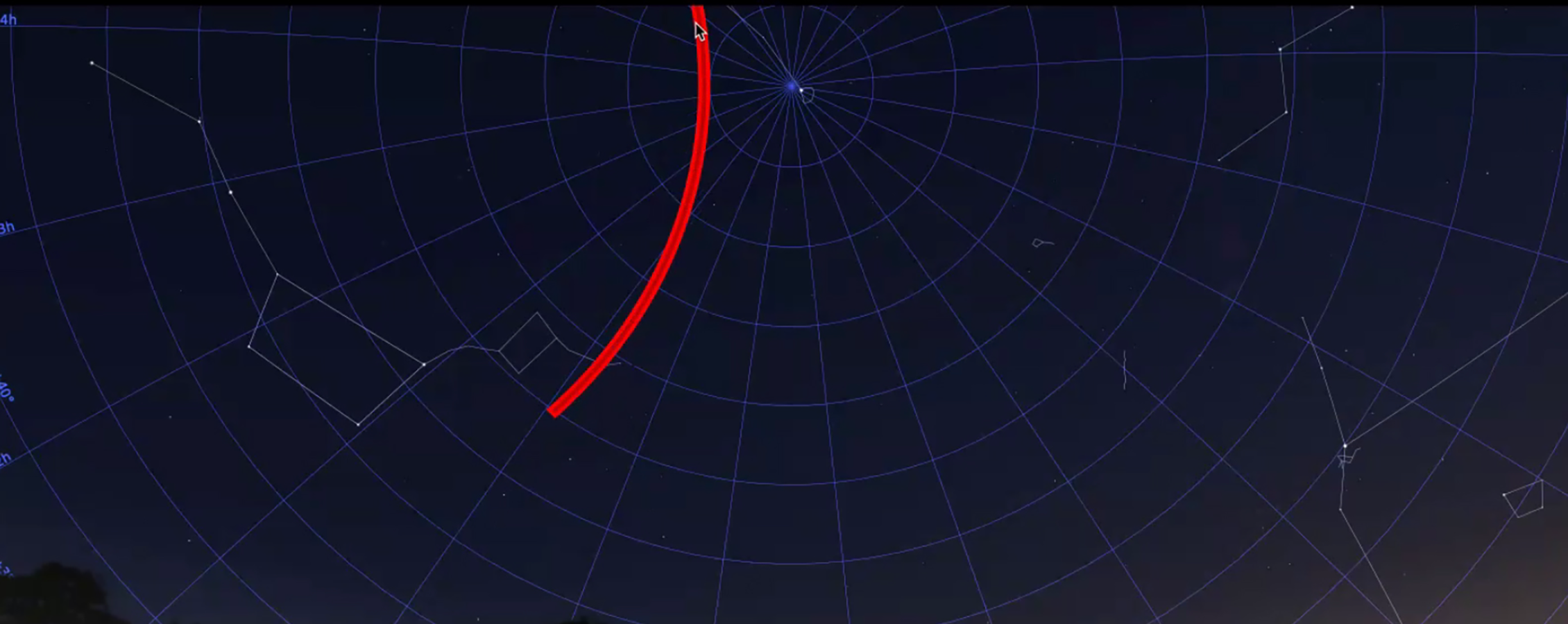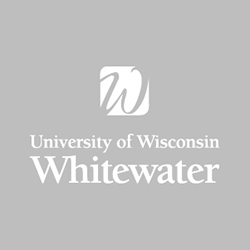DEPARTMENT OF PHYSICS
With a relentless spirit of inquiry, we delve into the mysteries of the universe, from the subatomic to the cosmic scales. Our distinguished faculty, consisting of accomplished researchers and educators, passionately guide students through the intricate tapestry of theoretical understanding and experimental exploration. Equipped with state-of-the-art laboratories and cutting-edge technology, students have the opportunity to engage in groundbreaking research that pushes the boundaries of human knowledge. Whether unraveling the secrets of particle physics, delving into the complexities of quantum mechanics, or deciphering the dynamics of celestial bodies, our Physics Department is a hub of intellectual curiosity and scientific innovation, fostering the next generation of physicists and visionaries.
Contact us
Robert Benjamin
Department Chair & Professor
Phone: 262-472-5514
Location: Upham 151A
Patricia Filipiak
Department Assistant
Phone: 262-472-1067
Location: Upham 151
Mission Statement
The Department of Physics, as a member of the College of Letters and Sciences, strives to:
Create an environment that supports learning and research,
improve students' ability to analyze problems and develop appropriate solutions; and
create a community of scholars and students who aspire to high standards of achievement.
As a science department, we regard our mission to include:
Teaching students systematic methods for evaluating evidence and information by helping them build and test physical hypotheses and theories; and
fostering students' critical thinking skills, such as drawing conclusions, inferring relationships, solving problems and making predictions about the natural world.
As a department of physics, we are committed to providing:
A rigorous and effective curriculum for physics majors and minors, with depth of study for those students who desire to pursue a career in, or further study of, physics, astronomy, engineering, technology or science education;
effective and engaging courses for students who choose to take physics or astronomy courses either as part of the breadth of a liberal arts education or whose majors or career goals require them;
educational experiences in physics and astronomy through public outreach, with emphasis on the UW - Whitewater service area; and
opportunities for students and faculty to engage in research.
Majors
- Physics - Engineering and Industry Emphasis (BA/BS)
- Physics - Graduate School Emphasis (BA/BS)
- Physics Science Education (BSE)
- Two year transfer
- Four year degree
- Dual degree program
Patricia Filipiak
Department Assistant
Department(s): Physics, GEOGRAPHY/GEOLOGY/ENV SCI
Upham Hall 151 |
(262) 472-1067
There are numerous scholarship opportunities available to students, both through the university, the College of Letters and Sciences and the Physics Department. To make life a little easier, all of the university's scholarship applications and requirement listings are available online.
Scholarships for Women and Minorities
UW-Whitewater Scholarships
- Christine McLean Metcalf Family Scholarship for Women in Science
- Dr. Ernella S. Hunziker Scholarship for Women
- John W. Ebbott Scholarship for Latino Students
- Sahyun Scholarship for Physics Diversity
Other Scholarships
- APS/IBM Research Internship for Undergraduate Women
- National Society of Black Physicists
- APS Scholarship for Minority Undergraduate Physics Majors
- APS Scholarship for Women Undergraduate Physics Majors
- Metropolitan Milwaukee Association of Commerce Research Park Technology Scholarship
- The scholarships will be awarded each year to two (2) college juniors in a technology field and will continue through their senior year, provided they meet program criteria.
- WiscAMP Academic Enrichment Program (WiscAMP-AEP) 6 Week course
- EduMed Scholarships for Women
Scholarships and awards within UW-W Physics department
- First Year Physics Award
- Physics Excellence Scholarship
- R.W. Prucha Memorial Scholarship For High School Physics Teachers
- This scholarship is awarded to students pursuing a career in Physics Education and teaching.
- Sahyun Scholarship for Physics Diversity
College of Letters & Sciences Science Scholarships of interest to Physics majors
- A. A. Upham Science Scholarship
- William Beck Scholarship
- Caroll & Kay Flanagan Scholarship
- Math majors
- College of Letters & Sciences Alumni Scholarship
- Christine McLean Metcalf Family Scholarship for Women in Science
- Y. W. Fok Memorial Scholarship
Scholarships that may be of interest to Physics Education Emphasis
- Alice & Floyd Quinney Scholarship
- Alice Jane Sokol Scholarship
- Andy & Anna Burish Scholarship
- Clem and Bernice Wisch Scholarship
- Cord O. Wells Scholarship
- Dr. Ernella S. Hunziker
- Irvin L. Young Scholarship
- James & Patricia Freer Family Scholarship
- Joseph Pease Scholarship
- Ken and Dorothy Otting Scholarship
- Laura Ferris Scholarship
- Raymond, Beulah & Marian James Scholarship
- The Greenhill Scholarship
- Warren & Virginia Theune Scholarship
- Helen Knosker Scholarship
- UW-W Alumni Association Scholarship
Other UW-Whitewater Scholarships
National Scholarships and Awards
- Barry Goldwater Scholarship
- DUE JAN 31
- Available for rising juniors and seniors. Students must be nominated internally by the University.
- SPS (Society of Physics Students) Scholarships
- DUE starting FEB 1
- AAPT Physics Teaching Scholarships and Grants
- SMART Scholarship-for-Service program
- Dept of Defense, Free tuition, internship and job after school
Student Research Support
- UW-Whitewater Undergrad Research Program
- Due around Dec 1, around April 29
- Projects are presented on Undergraduate Research Day on campus in April.
- Selected projects will be presented nationally at the National Council for Undergraduate Research.
- UW-Whitewater Undergrad Research Travel
- Rolling deadline
- Sigma Xi Grants-in-Aid of Research
- DUE MAR 15, OCT 15
- SPS Undergraduate Research Awards
- DUE NOV 15
- A research project to be carried out by SPS Chapter.
Fellowships Programs
- National Academies Fellowships Office
- Ford Foundation Diversity Fellowships
- Pre-doctoral, Dissertation, and Post-doctoral fellowships
- Jefferson Science Fellowships.
- Hertz Foundation Graduate Fellowship
- DOE Computational Science Graduate Fellowship
- DOE National Nuclear Security Administration Stewardship Science Graduate Fellowship
- Naval Research Laboratory Postdoctoral Fellowship Program
Additional Opportunities
- Nuclear Propulsion Officer Candidate Program (NUPOC)
- The Nuclear Propulsion Officer Candidate Program (NUPOC) offers a scholarship, a sign-on bonus for select positions, and a guaranteed job with the U.S. Navy in nuclear propulsion after graduation to students who are within 30 months of graduation. There are no drills or uniforms before graduation. Available positions are nuclear power school instructor, nuclear reactor prototype instructor, surface nuclear propulsion officer, and submarine officer. Any students having taken two semesters of calculus and two semesters of calculus-based physics and who are U.S. citizens are eligible.
Why Study Physics?
The following chart from the American Institute of Physics provides a more detailed representation of the career options available to students majoring in physics.
In addition, please see the American Physical Society Why Study Physics

Helpful Documents:
- Advice on planning out your four year course schedule
- Class Planning Spreadsheets: Starting in the Fall of an EVEN numbered year, Starting in the Fall of an ODD numbered year.
- Priority of classes pertaining to the requirements of the Physics Major
Research Opportunities:
- Tips for Applying to Scholarships, Jobs, REU and Internship Programs
- Programs for Women and Minorities
- Undergraduate Research
- Summer Research Experience for Undergraduate (REU) Opportunities
- Internships
Career Paths
Physics graduates from the University of Wisconsin-Whitewater have achieved success in many fields. Many of our graduates work in industry in both technical and management positions. Teaching continues to be a good career choice, with a stable demand for physics teachers. Military service, including the Navy's nuclear program, is another possible career option. A physics degree is also excellent preparation for further study in many areas. Recent UW-Whitewater graduates are pursuing graduate study in physics as well as in related areas such as astronomy, engineering, computer science, data science and medicine. Other UW-W graduates are conducting research in diverse fields, including oceanography at the Naval Oceanographic Office, aerostructural test engineering at NASA-Johnson Space Center in Houston, and the Human Genome Project at UW-Madison.
Recent UW-Whitewater physics graduates' employers range from large corporations such as Johnson Controls, Wisconsin Energy, and Motorola, to smaller high-technology companies such as Bell Industries and Fedco Electronics. Many recent graduates are also teaching in middle and high schools. Essentially all of our graduates who seek employment in a technical field are able to find it. Starting salaries for physics graduates are good; according to a recent survey by the American Institute of Physics, the median salary of 2018 physics degree recipients working in a STEM field was about $50,000 to $70,000.
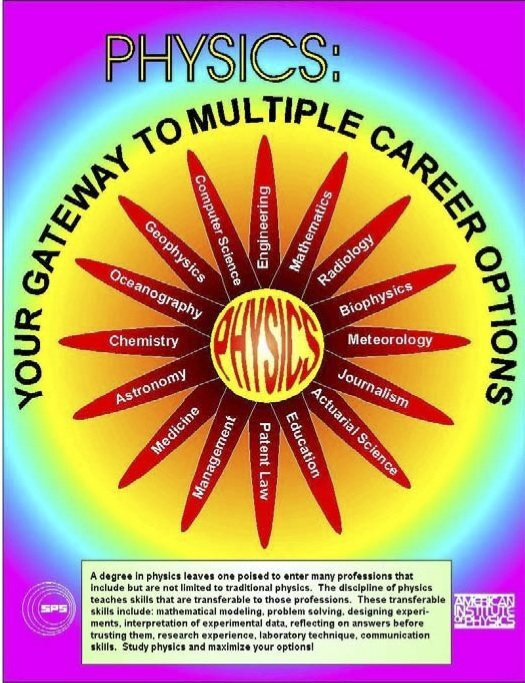
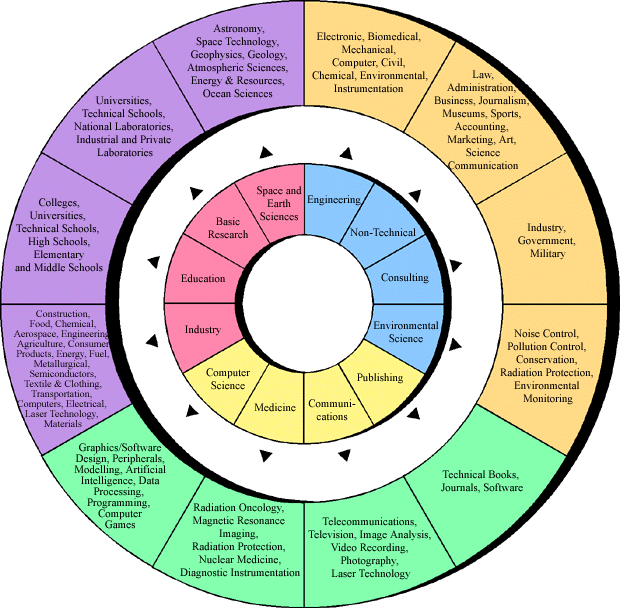
Additional Job Opportunity
Nuclear Propulsion Officer Candidate Program (NUPOC)
The Nuclear Propulsion Officer Candidate Program (NUPOC) offers a scholarship (up to $4300 monthly), a $15,000 sign-on bonus for select positions, and a guaranteed job with the U.S. Navy in nuclear propulsion after graduation to students who are within 30 months of graduation. There are no drills or uniforms before graduation. Available positions are nuclear power school instructor, nuclear reactor prototype instructor, surface nuclear propulsion officer, and submarine officer. Any students having taken two semesters of calculus and two semesters of calculus-based physics and who are U.S. citizens are eligible. Local contact:LT Andrew Dzyuba: (244)244-4912,
For Further Information:
The department has a set of SLOAN Career Cornerstone Series CDs on career information for engineering and sciences. These are available to view and access in the department office.
In addition check out Cornell's Physics Career Resources page. It has a comprehensive list of Physics career options.
Other sites to look at are:
- Aerotek Job Placement Service with a specialization in Science Jobs
- American Institute of Physics career services
- APS Career and Professional Development Liaison Program
- National Research Council career planning center
- AIP Statistical Research Center
- Physics jobs online
- Job Hunt
- Society of Physics Students
- American Physical Society
- American Association of Physics Teachers
- American Astronomical Society
- NASA JOBS: Student Opportunities
- Optical Society of America
- Physics Today Career Network job board There are over 200 jobs posted monthly.
- Careers with Numbers
- Talent Desk
Engineering Career Programs
- Institute of Electrical and Electronics Engineers IEEE is the world's largest professional association dedicated to advancing technological innovation and excellence for the benefit of humanity.
IEEE Job Site The official IEEE Website for Engineering and Technology Jobs. - EE Times Engineering Careers The hub for engineers on the move.
Physical Data
Abramowitz and Stegun: Handbook of Mathematical Functions Integral Table
Wolfram Mathematica On-line Integrator
Particle Data Booklet
X-Ray Data Booklet
SIMBAD Astronomical Database
Periodic Tables of the Elements: The Periodic Table with links to the properties of each element. Various versions.
Professional Organizations
American Institute of Physics
The American Institute of Physics (AIP) is a not-for-profit membership corporation chartered in New York State in 1931 for the purpose of promoting the advancement and diffusion of the knowledge of physics and its application to human welfare
American Physical Society
The American Physical Society is an organization of more than 41,000 physicists worldwide.The Institute of Physics
The Institute of Physics is a learned society and the professional body for physicists in Great Britain and Ireland. It is charged by Royal Charter to "promote the advancement and dissemination of a knowledge of and education in the science of physics, pure and applied".National Society of Black Physicists
Promoting the professional well-being of African American physicists and physics students within the international scientific community and within society at large.National Society of Hispanic Physicists
The purpose of this society is to promote the professional well-being and recognize the accomplishments of Hispanic physicists within the scientific community of the United States and within society at large.Optical Society of America
Optics and Photonics Research, Applications, and Industry News.The Society of Physics Students
Information about the Society of Physics Students (SPS) organization. This the national organization's site.
Other good physics related sites
Dr. Sahyun's List of Physics Links
Links to Physics Journals, Physics Resources, and useful sites with videos, demonstrations, applets, and information.
How Stuff Works
Explores the science behind many technologies familiar to us in modern life.
Learn Physics Today!
A tutorial site with interactive questions and feedback.
Insanely Great Science Websites
Large collection of links to science sites.
Spacetime Wrinkles
A visual introduction to Einstein's relativity.
CERN European Laboratory for Particle Physics
The European Laboratory for Particle Physics, located near Geneva in Switzerland and France. CERN is the birthplace of the World-Wide Web.
Physics Demonstration Videos from Wake Forest University.
Graduate School Links
FELLOWSHIP OPPORTUNITIES
In no particular order
- National Defense Science & Engineering Graduate Fellowship
- Department of Energy (DOE) Computational Science Graduate Fellowship
- Department of Energy National Nuclear Security Administration Stewardship Science Graduate Fellowship (SSGF) Program
- National Science Foundation Graduate Research Fellowship Program
- Hertz Foundation Graduate Fellowships
- Smithsonian Fellowship and Internship Programs
- Wisconsin Space Grant Undergraduate Scholarships and Research Awards
- National Physical Science Consortium Fellowships
Also look for opportunities in the Jobs, Research for Undergraduate Experience (REU), and Internships page.
Information on some PHYSICS and related GRADUATE SCHOOL OPPORTUNITIES
In no particular order
- Case Western Reserve University Astronomy and Cosmology and Astrophysics
- Columbia University / NASA Goddard Space Flight Center Institute for Space Studies
- Creighton University
- Duke University Pratt School of Engineering Master of Engineering Management Program
- Duke University Medical Physics Program
- Georgetown University Department of Physics
- Georgia Institute of Technology
- Illinois Institute of Technology
- Medical College of Wisconsin Graduate School of Biophysics
- Michigan State University
- MIT Department of Nuclear Science and Engineering
- MIT one year master's program in Science Writing
- Montana State University
- New Mexico Tech Physics
- Northwestern University Illinois
- The Ohio State University
- Oregon State University
- Penn State Engineering Science and Mechanics
- Penn State Materials Science and Engineering
- Rutgers University
- University of California, San Diego - Department of Physics
- Center for Theoretical BioPhysics -- UC San Diego
- UC Santa Barbara Physics
- University of Florida
- U Mass Lowell
- University of Michigan
- University of Pennsylvania Medical Physics
- University of Wisconsin - Madison
- Washington State University
- WSU Institute for Shock Physics
Physics Alumni
Our Recent Graduates:
-
Spring 2023
Physics Majors
- Forrest Davis-Education
- Andy Graf-Engineering
- Xavier Mleziva-Graduate School
- Logan Mueller-Graduate School
- James Negus-Engineering
UW-W Physics Alumni
Are you a UWW Physics Grad?
Would you like to provide current and future UWW Physics students an idea of career paths available to Physics Majors?
Please consider sending your name, a picture, year graduated, major and minor, and a short description of your current professional activities to: filipiap@uww.edu
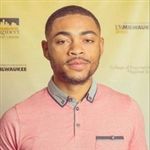 Michael Dorn-Reed
Michael Dorn-Reed
2017 – BS Physics-Engineering at UW-Whitewater (Dual Degree)
2017 – BS Mechanical Engineering at UW-Milwaukee
Mechanical Engineer at Johnson Controls, Milwaukee, WI
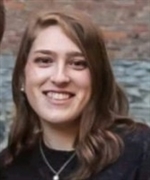 Monica Ripp
Monica Ripp
2015 – BS Physics-Graduate School and Chemistry majors, Math minor at UW-Whitewater
2021 – PhD Physics at Syracuse University.
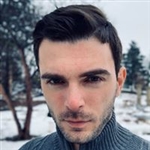 Alexandre Fernandes
Alexandre Fernandes
2014 – BS Physics-Graduate School and Applied Math majors UW-Whitewater
2017 – MS Physics at University of Albany, New York
Machine Learning Engineer with Relativity
I taught in the UW-Whitewater Physics department for a year while Dr. Benjamin was on sabbatical leave. Then I taught at Madison Area Technical College ( MATC) and Edgewood College for a year. I worked for a year as Associate data Scientist for Concurrency, Inc. Now I am a Machine Learning Engineer with Relativity.
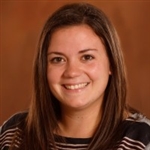 Ashton Falduto
Ashton Falduto
2013 – BS Physics-Graduate School major with Math minor, UW-Whitewater
2017 – MS Physics, Central Michigan University
PhD Candidate Technische Universitat Darmstadt, Germany
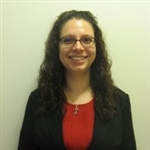 Loryn Zachariasen Sommerville
Loryn Zachariasen Sommerville
2013 BS Physics-Graduate School major with minors in Geology and Math at UW-Whitewater
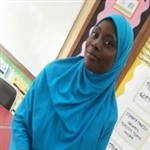 Rasheedat Yahaya
Rasheedat Yahaya
2009 – BSE Physics Education, UW-Whitewater
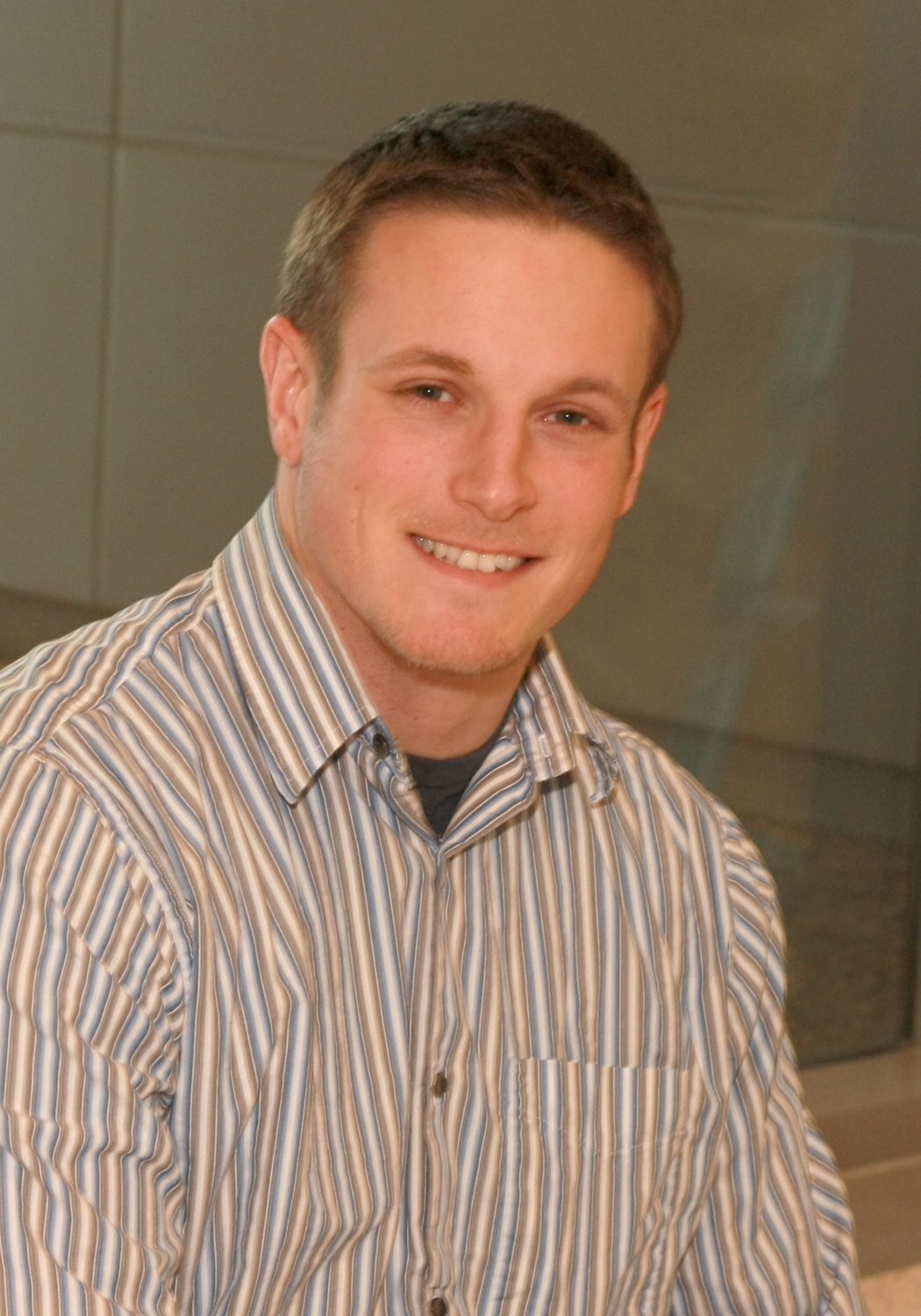 Ryan Haislmaier
Ryan Haislmaier
2008 - B.S. Physics Major, Chemistry and Math Minors
2009 - 2016 - PhD, Penn State Univ, Dept of Materials Science and Engineering
2017 - Postdoctoral research scholar, U of Minnesota, Dept of Chemical Engineering and Materials Science
2018 - PTD Engineer at Intel Corporation, Hillsboro, Oregon
2022 - Senior R&D Engineer at PsiQuantum, Palo Alto, California
My Postdoc research involved the development, synthesis, characterization and nano-processing of complex thin film materials grown by hybrid molecular beam epitaxy. By tuning the chemistry and structure of complex oxide thin films, a broad range of exotic material properties such as ferroelectricity, ferromagnetism and multiferroics can be engineered from the level of atoms, enabling far reaching device applications for next generation electronics. With this experience, I started as a PTD Engineer for Intel in the spring of 2018. In 2022 I moved to being Senior Research and Development Engineer at PsiQuantum.
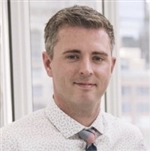 Eric Phillips
Eric Phillips
2008 - B.S. Physics Major, Math Minor
2010 – UW-Madison M.S. Nuclear Engineering and Engineering Physics
After finishing the Master’s degree, I began my career as a Nuclear Reactor Engineer at the Tennessee Valley Authority’s Sequoyah Nuclear Power Plant. In 2019, after a two year licensing program, the Nuclear Regulatory Commission granted me a Senior Reactor Operator License for Exelon’s Braidwood Nuclear Generating Station where I oversaw operation of their two nuclear reactors. In 2020, I accepted a position as the Reactor Engineering Manager at Sequoyah Nuclear Power Plant. I oversee the storage and use of approximately 4500 nuclear fuel assemblies. I also manage a team of 4 engineers that provide technical recommendations and reactivity oversight to the operations crew.
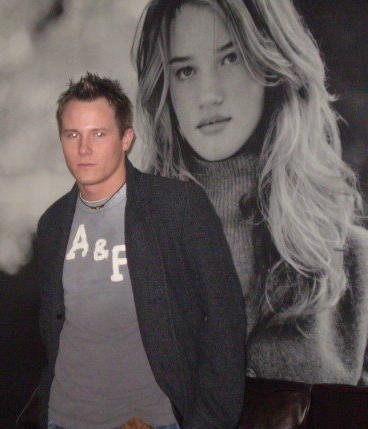 Chase Sutherland
Chase Sutherland
2008 - B.S. Physics Major, Math Minor
Milwaukee Tool - Senior Engineering Team Lead
I worked for a while at Briggs and Stratton using LabVIEW to do endurance and qualification testing.
Then I worked at Cummins in Stoughton, WI, in the crankcase ventilation lab. We used gravimetric efficiency to test how well our products are performing. It was pretty interesting work since I knew the products I worked on will someday be on the road.
Starting in 2013, I worked at Woodward, Inc, as a Mechanical 2 Test Engineer, designing automated hydraulic and pneumatic test systems for aerospace manufacturing lines.
Now, I am Senior Entineering Team Lead with Milwaukee Tool.
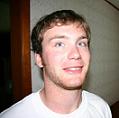 Joe Grams
Joe Grams
December 2006 - B.S. Physics Major, Math Minor
Technical Support for Epic Systems Corporation
I primarily support our product's installation on Citrix Servers and Windows Machines. I also do occasional development and scripting.
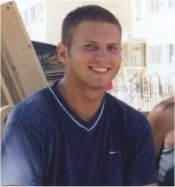 Josh Vizanko
Josh Vizanko
December 2006 - B.S. Physics Major, Math Minor
I used to be a mechanical designer for Nothelfer Gilman in Janesville, primarily designing and detailing welding and assembly systems for car factories for various automotive clients using SolidWorks.
Now, I am Senior Mechanical Designer for Caterpillar Global Mining
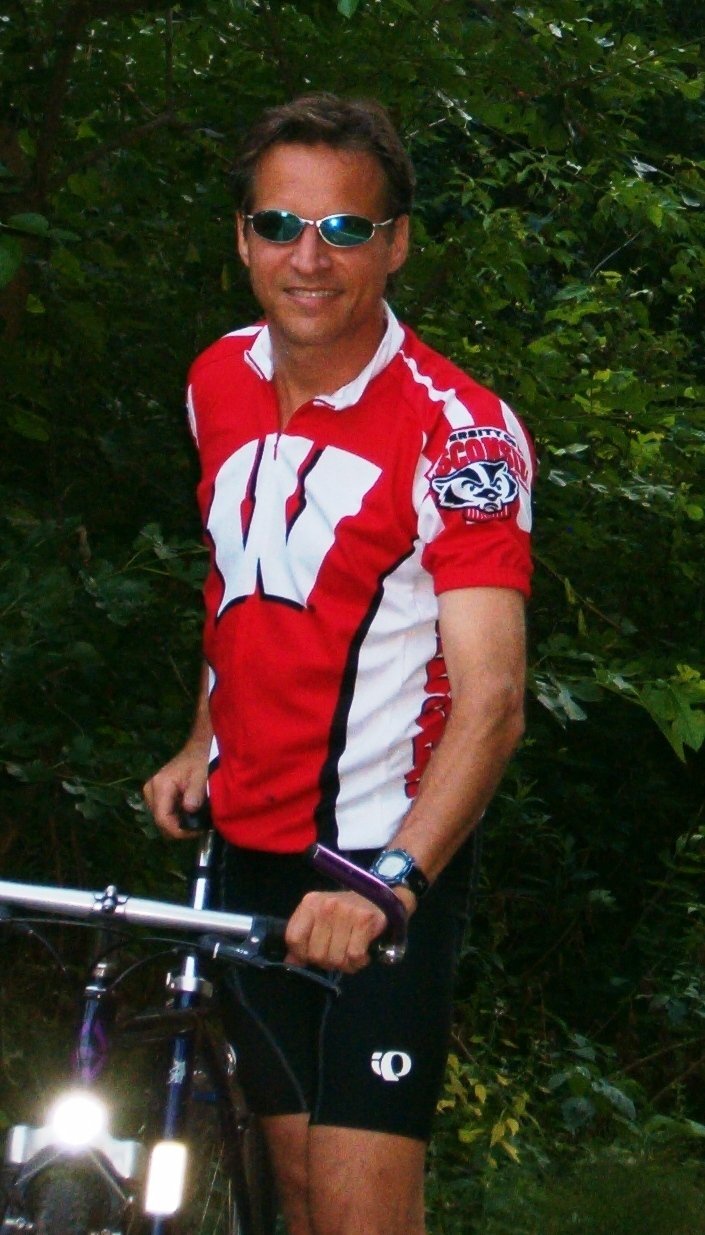 RB Jacobson
RB Jacobson
May 2006 - B.S. Physics Major, Math Minor
Graduate Student/ Research Assistant
UW Madison Materials Science Interdisciplinary
Principle Research: Fabrication of Three Dimensional Photonic Crystals by Stacking Silicon Nanomembranes using Electron Beam Lithography. Photonic crystals are periodic dielectrics that allow creation of a photonic band-gap that depend on the arrangement of the dielectrics. Introduction of defects in the dielectric periodicity create optical states within the band gap similar to dopants in a semiconductor. Since I am using silicon (and germanium), the optical range of the devices is in the near infrared (telecommunication wavelengths).
 Jeff Polak
Jeff Polak
May 2006 - B.S. Physics Major, Math Minor
2010 - MS in Physics from North Carolina State University
I am a Physics instructor and Laboratory Coordinator at the University of Southern Indiana, Evansville, IN. My usual teaching load includes our Physics for Educators course as well as lectures and laboratories in both our algebra- and calculus-based introductory sequences. In addition to my teaching duties, I am the faculty sponsor for the STEM Living Learning Community and I am also involced in orientation activities as a Faculty Advising Fellow.
In graduate school, I worked with the NC State Physics Education Research and Develpment group on research that focused on student understanding and the use of calculus in introductory physics. I also worked on projects that involved the SCALE-UP classroom, the Matter & Interactions curriculum, and the VPython programming environment.
 Matthew Benson
Matthew Benson
May 2002 - B.S. Physics Major, Management Computer Systems (MCS) Major
Software engineer on the Orion Crew Exploration Vehicle (CEV) for Honeywell.
The CEV will eventually replace the space shuttle and return man to the moon. I'm part of a small team that is designing and building the CEV avionics. This is my second job out of college. My first job was working as a test engineer on the International Space Station program for Boeing.
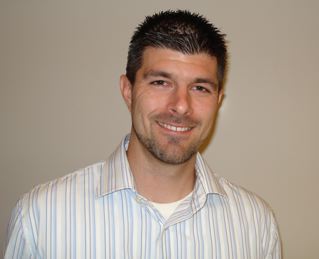 Ethan Westcot
Ethan Westcot
May 2001 - B.S. Physics Major, Math Minor
2002 - MS in Engineering Mechanics, Penn State University
Senior Staff Engineer, Generac Power Systems
After graduation from UWW, I went on to Penn State University where I earned my MS in Engineering Mechanics in 2002 with thesis research focusing on Powder Metallurgy. I began my professional career as a Project Engineer for two years at a metal injection molded component manufacturer in Minnesota, then was a Senior Mechanical Engineer for GE Healthcare in X-Ray Tube Engineering for CT Scanners for 17 years. Now, I am a Senior Staff Engineer with Generac Clean Energy Systems.
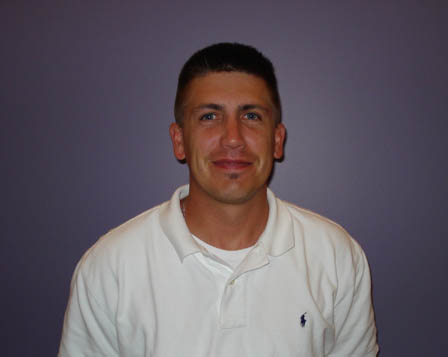 Brandon Palicki
Brandon Palicki
1999 - B.S. Physics Major, Math Major
Controls/Test Engineering Manager at Eaton Corporation
For 21 years, I designed programs, using LabVIEW, to do all the endurance and qualification testing in the Lab and final production performance verification at Briggs and Stratton. In our division we engineered and produced generators, pressure washers, outboard motors, pumps, air compressors/Inflators and home standby's. I was also responsible for testing future products. I was project Manager for Generac Power Systems for a while and am now Test Manager at Eaton Corporation, in Waukesha, testing electrical and mechanical power management systems.
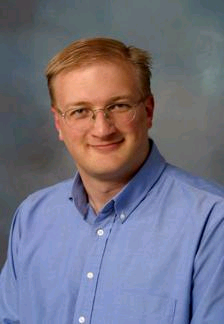 Scott Beardsley
Scott Beardsley
1995 - B.S. Physics Major, Math Major
Assistant Professor of Biomedical Engineering
Marquette University, Milwaukee, WI
I research human visual processing, neural engineering, and functional imaging.
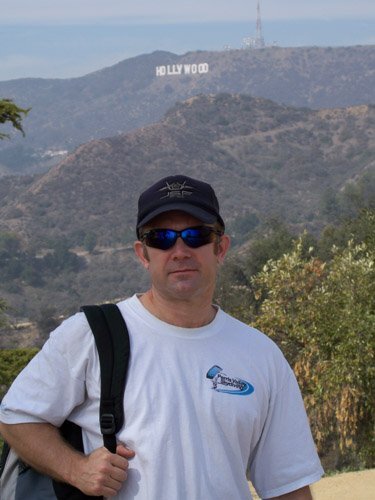 John Klinge
John Klinge
1988 - B.S. Physics Major, Mathematics Minor
Senior Staff Aeronautical Engineer
Lockheed Martin Aeronautics Company - Advanced Development Programs
I have worked for Lockheed Martin since 1991. I am a Level 6 Aeronautical engineer (Principal) at the Lockheed Martin Skunk Works in Palmdale, California, developing propulsion systems for military aircraft. I specialize in design, analysis and testing and manage a team of engineers while supporting Advanced Development Programs.
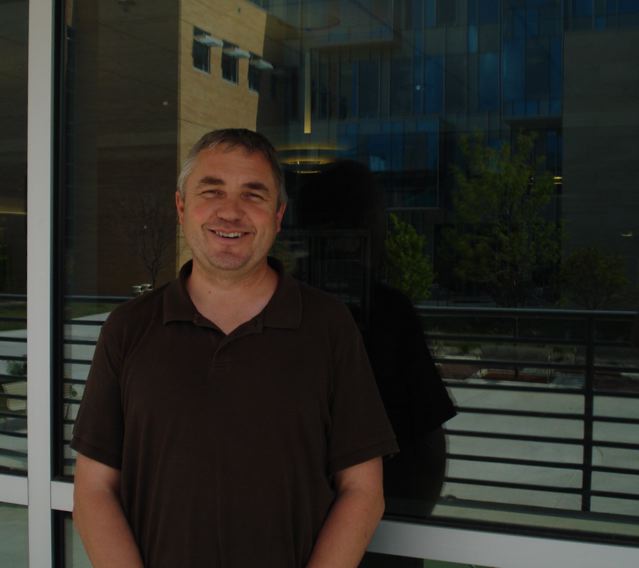 Michael Westphall
Michael Westphall
1985 - B.S. Physics, Mathematics Majors
Project Research Scientist
Space Astronomy Laboratory, UW-Madison
I'm currently using UV polarimetery to study magnetic fields in the Milky Way galaxy. I started out my career studying color in paper fabrication processes then moved on to investigate isotopic ratios of galactic cosmic rays. I have also designed systems for looking at human DNA proteins.
 Robin Smith
Robin Smith
1983 - B.S. Physics and Mathematics Major
1987 - MS Applied Physics, University of Central Florida
Following my graduation I taught physics for the US Navy's Nuclear Power School. After my tour of duty I went to work for the Naval Space Surveillance Center in 1988. In 1996 I transferred to the Naval Research Laboratory where I worked as a research physicist. My duties included serving as an astrodynamicist, RF engineer and analyst for a satellite communications branch. I retired in 2012 after 37 1/2 years of naval service.I retired in 2016 as President and lead physicist at RTSI Consulting, Spotsylvania, VA, where I worked with the aerospace industry providing support in the areas of RF engineering, orbital mechanics and software for remote instrument control and data collection.
I'm currently attending the University of Virginia working to complete my master's of science degree in high energy phsyics.
I served as president of the Society of Physics Students and was inducted into Sigma Pi Sigma while at Whitewater. I started the annual faculty-student picnic and softball game.
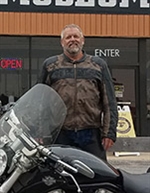 Brian McLean
Brian McLean
1981 - B.S. Physics and Math
Plant Engineer (retired)- Point Beach Nuclear Plant
I taught physics, reactor principles, and chemistry at US Navy Nuclear Power School in Orlando, FL from 1981 until 1987. In 1987, I completed a M.S. Electrical Engineering degree at UCF and started working in the commercial nuclear industry at American Electric Power in Columbus, OH. My family and I moved back to Wisconsin in 1991 when I started working as an engineer at Point Beach Nuclear Plant.
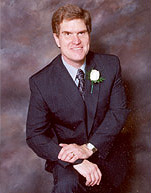 Cody Kreischer
Cody Kreischer
1980 - B.S. Physics Major
CEO Kreischer Optics
Hi, I'm Cody Kreischer, owner, President, and chief sales and technical contact at Kreischer Optics until I turned it over to my son, Tristan (2010 UW-Whitewater Physics graduate). I've worked in every phase of optical manufacturing, from curve generating to hand polishing of precision surfaces. In 1983, I completed my Master's degree at the University of Arizona's Optical Sciences Center with emphasis on lens design and optical testing. After three years of working as a Senior Engineer at Recon Optical in Barrington, Illinois, I decided it was time to devote myself full time to Kreischer Optics.
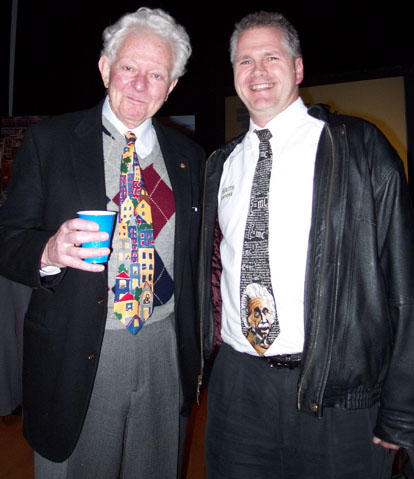 Scott Beutlich
Scott Beutlich
1978 - B.S.E. Physics teaching
High School Physics Teacher
Crystal Lake South High School , Crystal Lake, Il.
I have been teaching High School Physics at Crystal Lake South High School in Crystal Lake, Illinois for 29 years. I love my job teaching Physics to students and sharing ideas with other teachers. I have coached 45 high school teams in Baseball, Basketball and Volleyball. I am president of a local Physics teacher share group (over 220 teachers) called Physics Northwest. We meet once a month during the school year and share demonstrations and teaching ideas. Three of the members are former Physics students at CL South. I am also a table leader for grading the Advanced Placement Physics exams for the College Board.
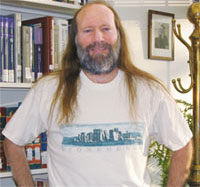 Pat Slane
Pat Slane
1977 - B.S.E. Physics/Mathematics Majors
M.S and PhD -UW- Madison
Director of Chandra X-Ray Observatory
Smithsonian Astrophysical Observatory at Harvard University
I am the Director of the Chandra W-Ray Observatory, operated for NASA by the Smithsonian Astrophysical Observatory and Harvard University. My research interests center on studies of supernova remnants, neutron stars, and X-ray studies of our galaxy. Our GaS research group actively includes a team of students and postdocs in a broad range of research areas.
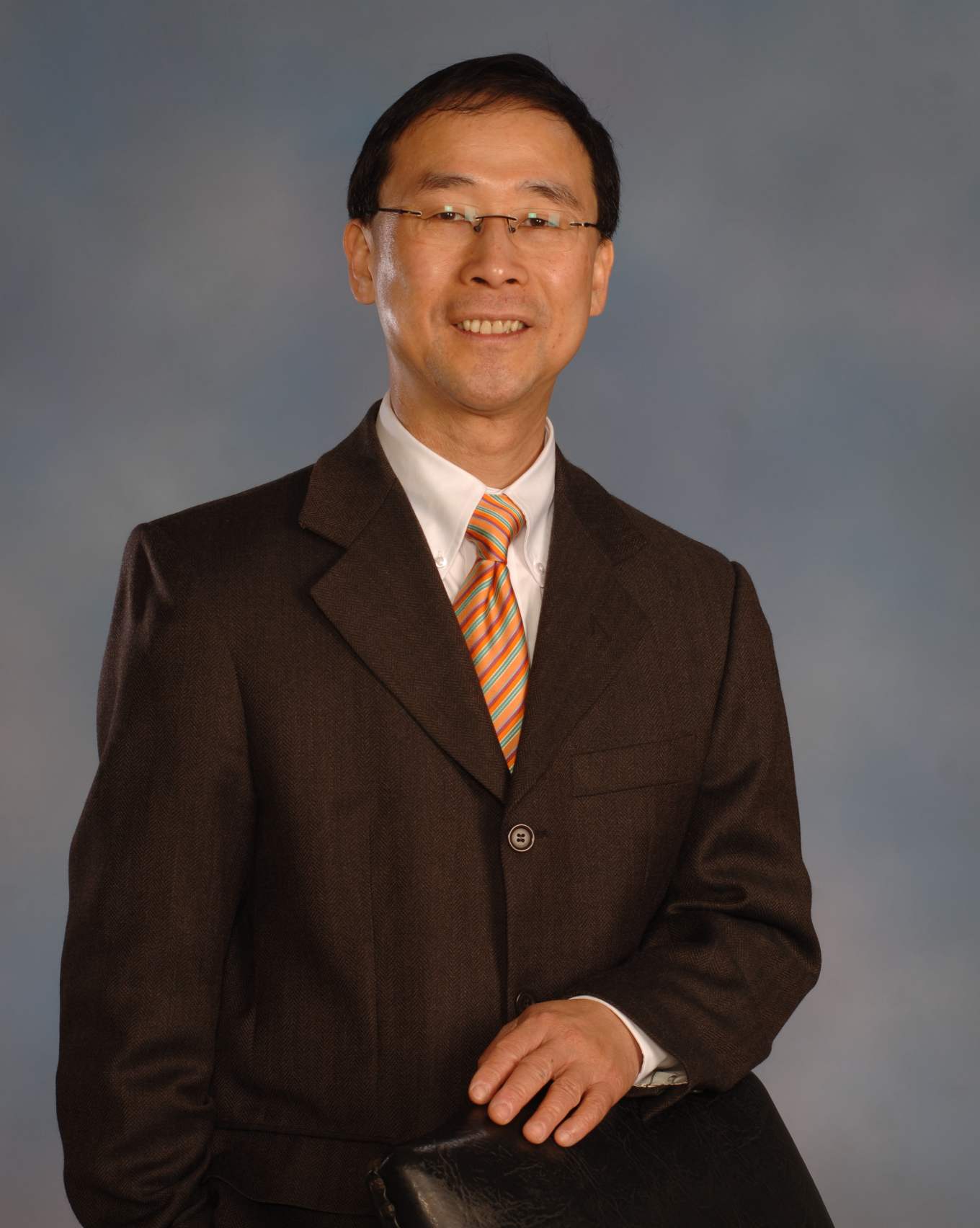 Ralph H. Zee
Ralph H. Zee
1974 - B.S. Physics major, Mathematics minor
Acting Associate Provost and Vice President for Research of Auburn University.
Associate Dean for Research and Professor of Auburn University's College of Engineering
After receiving his BS in Physics from UWW, Ralph completed his graduate study at UW-Madison receiving his master's and PhD degrees in materials science. He was a materials scientist at Chalk River Laboratory in Canada until 1986 at which time he joined the faculty at Auburn University. His administrative responsibility began in 2001 when he assumed the duty of the Associate Dean for Research in the College of Engineering. In January of 2007 he was appointed Acting Associate Provost and Vice President for Research of Auburn University with the responsibility of promoting research and building partnerships.
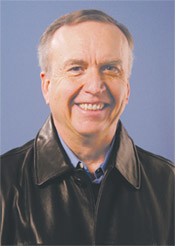 Art Andersen
Art Andersen
1967 - B.S. Physics and Math Majors
CEO Virtual Surfaces, Inc. Computer Scanning & Surface Services
Art is a "paleotechnologist.", it's an occupation that straddles the prehistoric and high tech manufacturing. Andersen's company, Virtual Surfaces, Inc. in Mount Prospect, Ill., provides engineering services to commercial clients. Using advanced software and high resolution three-dimensional scanners, he works with industry, the scientific community and museums to "connect the dots" that define surfaces.
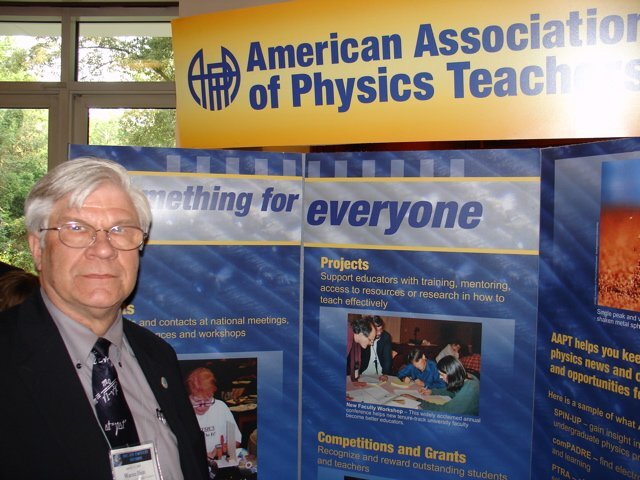 Warren W. Hein
Warren W. Hein
1966 - B.S. Physics and Mathematics
1970 PhD Nuclear Physics, Iowa State University
Program Officer, Division of Undergraduate Education
National Science Foundation
Warren Hein graduated in 1966 from the University of Wisconsin-Whitewater with a Bachelor of Science in Physics and Mathematics. He then attended Iowa State University on a National Defense Education Act Fellowship and graduated in 1970 with a PhD in Nuclear Physics. Hein taught physics at Northern State University and South Dakota State University in South Dakota from 1970 until February 1997. In 1997 he became Associate Executive Officer for the American Association of Physics Teachers in College Park, Maryland. In September 2007 he moved to the National Science Foundation as program officer in the Division of Undergraduate Education.
Robert Douglas
1960 - B.S. Physics and Math Majors
1962 - M.S. Physics, UW-Madison
Mr. Douglas retired as the President of Advanced Assembly Automation in 1999. Following his retirement, he served as a consultant for Wright Technology Network, a non-profit organization, dedicated to the transfer of technology from the United States Air Force to industry. He also did consulting with ConnecTerra, a provider of middleware software for the RFID industry.
Mr. Douglas had more than thirty years of technical managerial experience in the industrial automation field. Prior to joining Advanced Assembly Automation in 1992, he was Vice President of Marketing for the Materials Handling Division of Litton Industrial Automation. He also served as the President of Engineered Systems Division of Litton, General Manager of Gilman Engineering and Manufacturing Company and in various technical roles for Gilman and the Parker Pen Company.
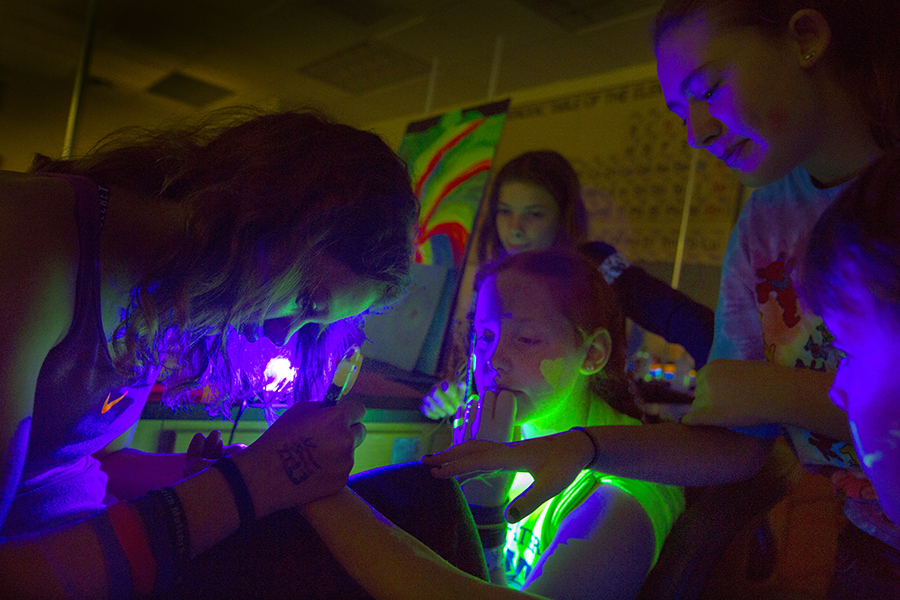
Physical science expertise can help pave the way to several career choices, including engineering, technology, animal management, urban planning and other environmental careers.
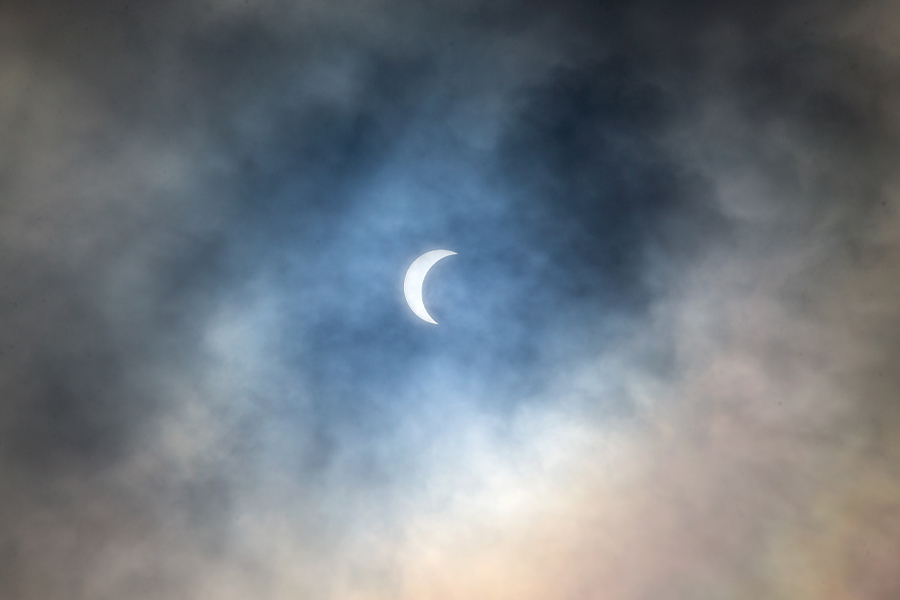
In a natural science like physics that looks at everything from subatomic particles to galaxies and beyond, the basic laws are universal and many everyday technologies result from discoveries of basic physical principles. Find challenging, exciting, and productive careers such as acoustics, astronomy and astrophysics, quantum and particle physics, engineering, geophysics, and optics.

Earn two bachelor's degrees! In this emphasis you'll gain an excellent foundation in physics and an engineering field of your choice — civil, electrical, industrial, materials or mechanical engineering.
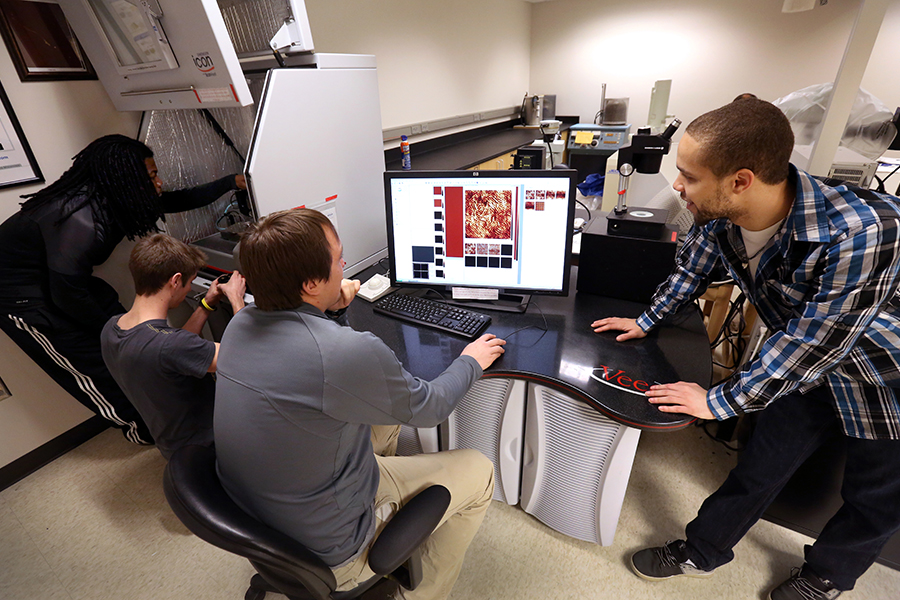
Planning to go to grad school? We'll prepare you to confidently enter a master’s degree or Ph.D. program in physics in areas such as astronomy, engineering, computer science, and medicine.
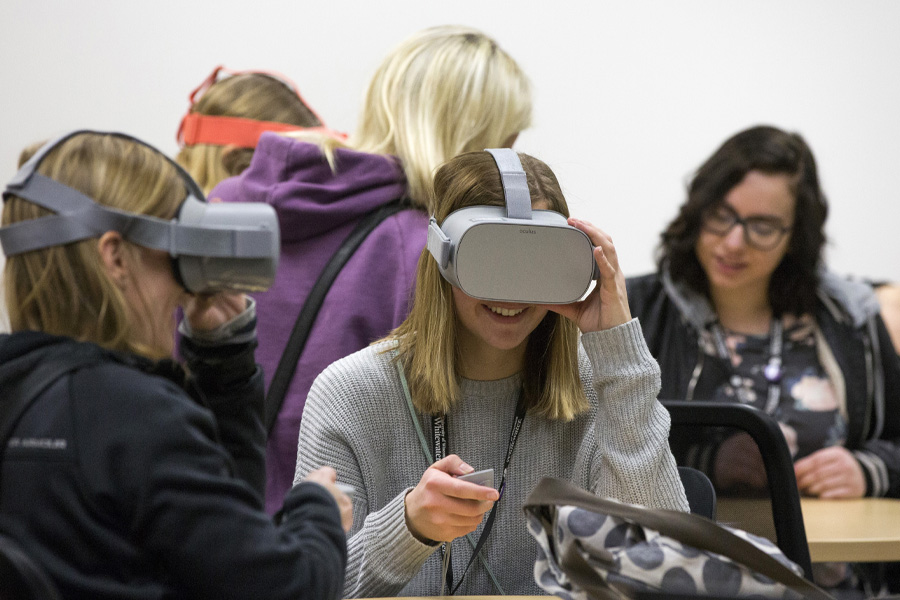
There are elements of physics in fields from computers and technology to power and energy. You can help students begin a path that can lead to numerous career choices with a physics education minor at UW-Whitewater.
Physical Science
MinorPhysical science expertise can help pave the way to several career choices, including engineering, technology, animal management, urban planning and other environmental careers.
Physics
Major/Emphasis, MinorIn a natural science like physics that looks at everything from subatomic particles to galaxies and beyond, the basic laws are universal and many everyday technologies result from discoveries of basic physical principles. Find challenging, exciting, and productive careers such as acoustics, astronomy and astrophysics, quantum and particle physics, engineering, geophysics, and optics.
Physics (Engineering)
Major/EmphasisEarn two bachelor's degrees! In this emphasis you'll gain an excellent foundation in physics and an engineering field of your choice — civil, electrical, industrial, materials or mechanical engineering.
Physics (Graduate School)
Major/EmphasisPlanning to go to grad school? We'll prepare you to confidently enter a master’s degree or Ph.D. program in physics in areas such as astronomy, engineering, computer science, and medicine.
Physics Education
MinorThere are elements of physics in fields from computers and technology to power and energy. You can help students begin a path that can lead to numerous career choices with a physics education minor at UW-Whitewater.

